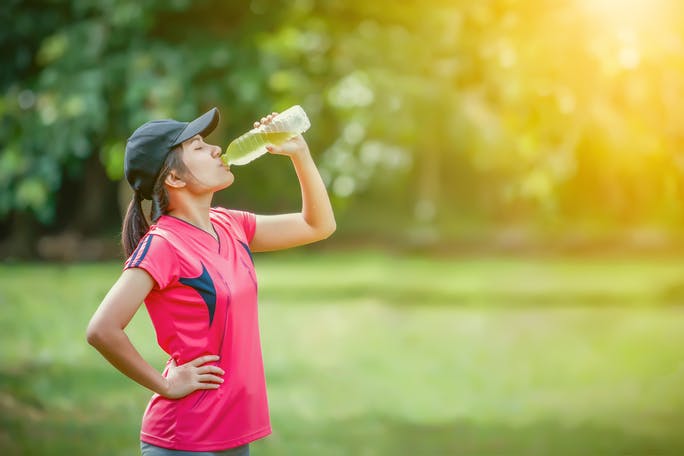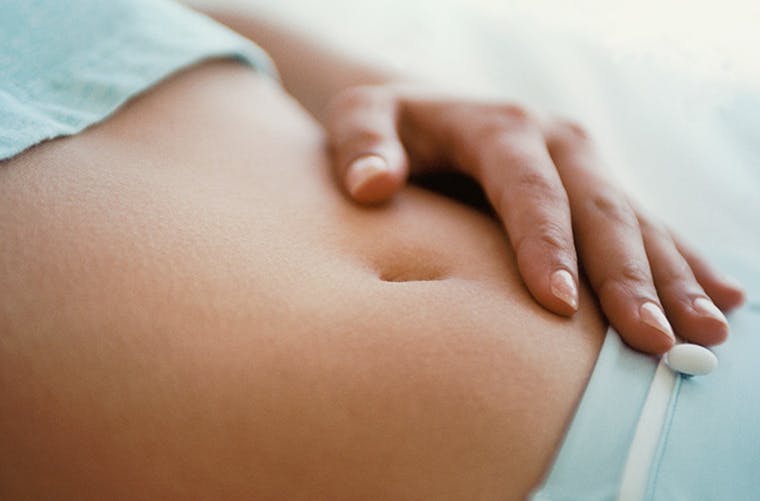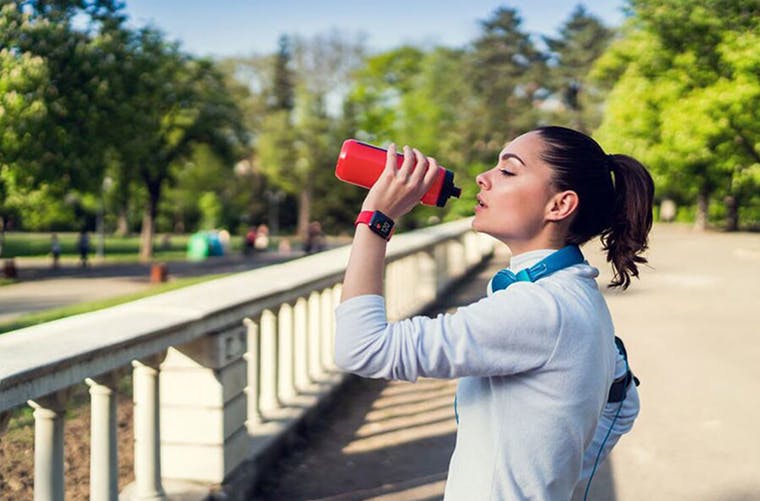Our Guide to Electrolytes Benefits – Learn All About the Benefits of Drinking Electrolytes

When you think about electrolytes, bottled sports drinks in every color imaginable probably come to mind first. But what are electrolytes exactly, and why do we need them? Let's explore the answer to that question, as well as the role electrolytes play in our body.
What are Electrolytes?
Basically, electrolytes are electrically charged minerals that help regulate the amount of fluids and the balance of acids and bases in your body. They are also vital in helping control nerve activity, heart rhythm, muscle movement and other important functions.i Your body needs electrolytes to keep your heart pumping and your muscles functioning. Electrolytes are present in the body throughout the blood, urine, tissues and other body fluids. There are a range of minerals that are electrolytes, including sodium, calcium, potassium, phosphate, phosphorus, and magnesium.ii
Notable electrolytes and why you need them: i
- Sodium: helps control the fluid levels in the body as well as proper nerve and muscle function
- Potassium: helps with heart function and muscle function
- Magnesium: important for enzyme reactions
- Calcium: helps to build and maintain strong bones vi
- Phosphorus: filters waste and repairs tissues and cells vii
Electrolytes Benefits & Roles in the Body
Electrolytes play an essential role in keeping our bodies running smoothly. It’s important to get the recommended daily amounts of electrolytes through a healthy diet. There are quite a few different ways they benefit the body.
Electrolytes roles include:iii
- Keeping fluid levels in blood plasma and the body stable
- Regulating the pH levels of blood
- Enabling muscle contraction for moving muscles as well as the heart beating
- Sending nerve signals through the body from the heart, muscle and nerve cells
- Assisting in blood clotting and building new tissue
What happens if you don't get enough electrolytes?
Most people can get enough electrolytes through their diet. While sodium may be a concern for some people, it is unlikely you’ll get too much of any one electrolyte in your system. However, there may be some situations where you either won't get enough electrolytes or lose a large amount of them.iv
You may also need to replenish your electrolytes if you do intense exercise and lose fluids and electrolytes through sweat. Symptoms you may experience include dehydration, muscle cramps and spasms.
The amount of electrolytes you lose during exercise can vary depending on your weight, fitness level, workout intensity, workout duration, air humidity and how much you usually sweat. To replenish electrolytes, be sure to drink plenty of fluids, eat well and potentially grab a dietary supplement with electrolytes.v
How to Incorporate Electrolytes in your Diet
Generally, people don't need to worry about their electrolyte levels if they're eating a healthy diet and getting enough fluids. But, every situation and body is different, so you may need reminders to meet the recommended daily intake for electrolytes:vi
- Stay hydrated
Make sure to drink enough water, and don't wait until you become dehydrated to drink fluids. Even if you don't sweat a lot, you may want to opt for a supplement with electrolytes after a hard workout. Help replace the potassium, magnesium or sodium that's depleted through supplements with electrolytes like Emergen-C Lemon-lime flavored ElectroMIX. - Eat whole foods that naturally contain electrolytes
Include foods that are naturally high in minerals that are electrolytes in your diet. For example, milk products, beans, and certain fruits and veggies are all good sources of calcium, which is an electrolyte we need. Bananas and kiwis feature potassium. Nuts and whole grains contain phosphorus. - Don’t eat too much salt
Although you need sodium as an electrolyte, it's pretty easy to get enough in our modern diet.
Now that you know a bit more about the benefits of electrolytes, what they are and when we need more, you can learn more about other healthy lifestyle tips by exploring health topics and immune health 101 tips, and get answers to common questions with Emergen-C. It's important to listen to your body when you're exercising and supplement with electrolytes. If you're concerned about your electrolyte levels or getting enough in your diet, you can always reach out to your doctor or healthcare provider to get help. They'll be able to test your levels if needed and create a personalized plan from there.
SOURCES
i. Electrolyte Panel. MedlinePlus. https://medlineplus.gov/lab-tests/electrolyte-panel/ Accessed 11/20/2020.
ii. Fluid and Electrolyte Balance. Medline Plus. https://medlineplus.gov/fluidandelectrolytebalance.html/ Accessed
iii. Electrolytes: what are they? Roswell Park Cancer Center. https://www.roswellpark.org/cancertalk/201808/electrolytes-what-are-they-what-happens-if-you-dont-have-enough/ Accessed 11/20/2020.
iv. Electrolyte Drinks: Beneficial or Not? Cleveland Clinic. https://health.clevelandclinic.org/electrolyte-drinks-beneficial-or-not/ Accessed 11/20/2020.
v. Essential Electrolytes. Rush University Medical Center. https://www.rush.edu/news/essential-electrolytes/ Accessed 11/20/2020.
vii. Phosphorus in Your Diet. Healthline. https://www.healthline.com/health/phosphorus-in-diet. Accessed 5/2/2021








































